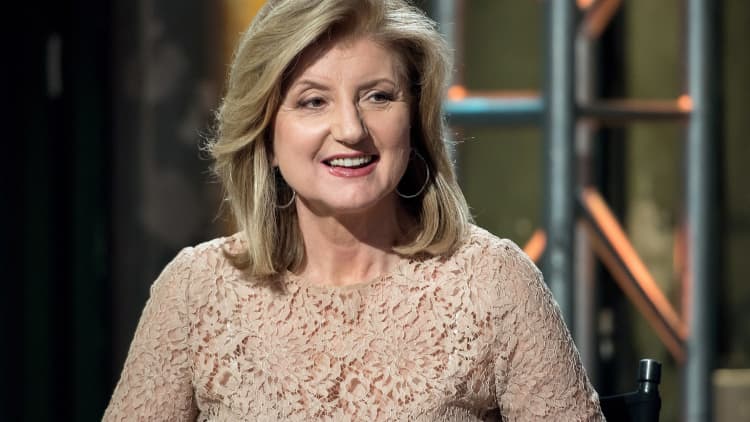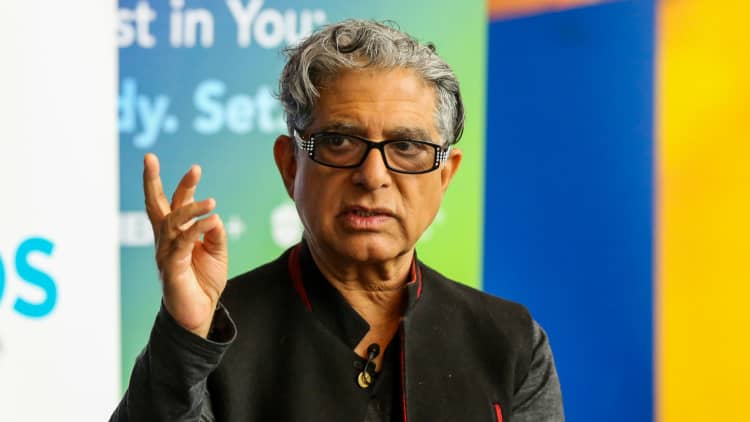People are willing to sacrifice some pretty popular vices — like alcohol and pizza — in exchange for a lifetime of restful sleep, a new survey reveals.
Mattress Advisor surveyed over 1,000 Americans who self-identified as troubled sleepers and asked what they would be willing to give up to ensure quality sleep forever, as well as how much sleep they would give up for a better life.
The results reveal just how desperate many Americans are for sufficient shut-eye.
People are willing to give up alcohol, but not sex
The one thing survey respondents were most willing to give up in exchange for better sleep? Alcohol.
Over half of the survey respondents (53 percent) said they would ditch hooch forever in exchange for a lifetime of restful of sleep. Women (61 percent) and Gen-Xers (62 percent) were the most likely to swap wine, beer and liquor for Zs.
Even millennials would give up alcohol for good, though. Over half the millennial respondents (55 percent) said they would abstain from alcohol for life in exchange for restful sleep.
The second most popular thing sleep-deprived Americans would give up is social media — 43.98 percent of those surveyed say they would kiss goodbye platforms like Twitter and Facebook if it meant a lifetime of restful sleep. Pizza came in third, with 43.93 percent.
However, there are some things people aren't so quick to give up for sleep. Only 14 percent of those surveyed are willing to nix sex for a lifetime of restful snoozing, and only 13 percent would give up music.
Conversely, there are a few things for which people are willing to sacrifice sleep.
Mattress Advisor's survey found that people are willing to give up the most hours of sleep (2.48 hours a night for six months) in exchange for their dream home. The second most popular choice was for their dream job, with respondents willing to give up 2.46 hours of sleep in exchange for the perfect gig.
Interestingly, respondents are only willing to forego 1.64 hours of sleep for six months in exchange for a 10 percent raise at work.
The benefits of good sleep
The Centers for Disease Control and Prevention recommend that adults get seven or more hours per night — sufficient rest helps people retain information, improves memory function and boosts creative thinking.

Some of the most successful people know its importance: Amazon founder Jeff Bezos says that he's more alert and thinks more clearly when he's had eight hours of sleep, and Microsoft founder Bill Gates has also admitted that he likes to squeeze in seven hours of sleep.
"I used to work all night in the office, but it's been quite a while since I lived on catnap," says Gates in a Microsoft FAQ. "I like to get seven hours of sleep a night because that's what I need to stay sharp and creative and upbeat."
However, many Americans aren't hitting the hay hard enough.
One-third of American adults don't get enough sleep, according to the CDC. And two-thirds of workers say they would be better employees if they were able to get more shut-eye, according to a survey from Glassdoor. Sleep deprivation has even been shown to cost the economy $411 billion in productivity losses.
How to get a good night's rest
Those in Mattress Advisor's survey may be on to something when it comes to giving up vices. While you don't need to nix happy hour indefinitely in order to sleep well, studies show drinking before bed can mess with your sleep patterns.
It is linked to more slow-wave sleep patterns, according to the National Sleep Foundation. This is the type of deep sleep that enables memory formation and learning. Drinking before bed can also interrupt your body's circadian rhythm, which means that while a glass of wine might knock you out fast, it also causes you to wake up in the middle of the night. Booze additionally blocks REM sleep, so your sleep is lower quality and less restorative.
Giving up social media could also be a secret to scoring better slumber.
Ninety percent of people in the U.S. admit to using technological devices during the hour before bed, according to the National Sleep Foundation. But using electronics can be physiologically and psychologically stimulating, which can delay your body's internal clock, as well as suppress your body's release of the sleep hormone melatonin. Being glued to the screen before bed can also delay and reduce REM sleep, which can affect how alert you feel the next morning.
While you don't have to deactivate your accounts and log off for good, it's recommended to power down your electronics at least 15 minutes before bed. It's a trick billionaire Virgin Group founder Richard Branson uses. While his nightly routine includes a little bit of surfing social media, he makes sure to unplug before bedtime.
"After dinner, I like to retreat to a quiet space with a cup of tea and do a quick email and social media sweep. Finishing the day reading your feedback on Facebook, Twitter and Instagram makes me feel very humbled," Branson writes in a blog post. "But I make sure to switch off from the digital world for a while before going to sleep, so I my brain can unwind."
Don't miss: A glass of wine after work may be good for your brain, according to science

Like this story? Like CNBC Make It on Facebook!


